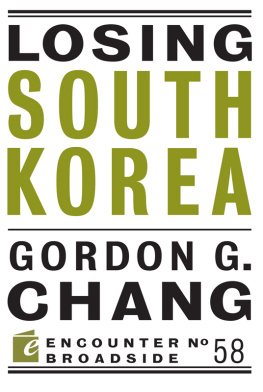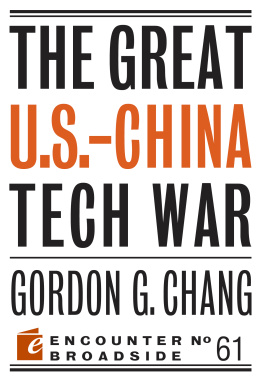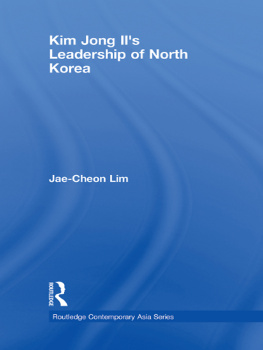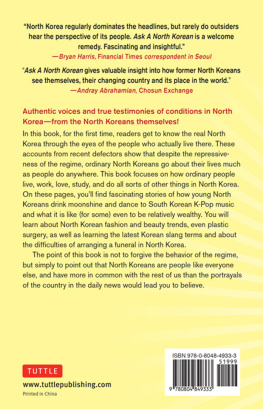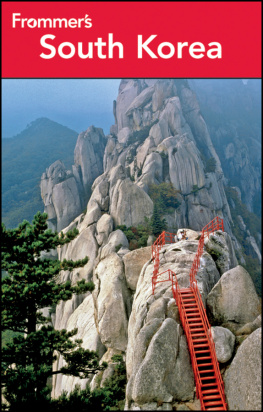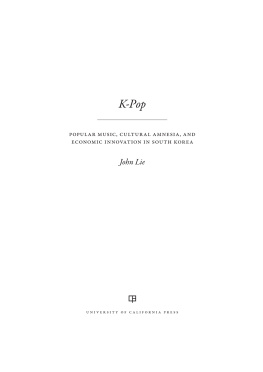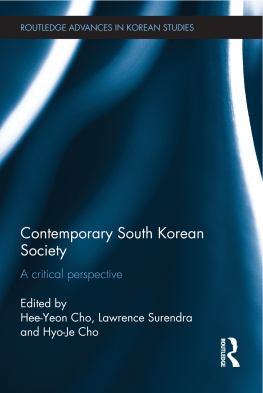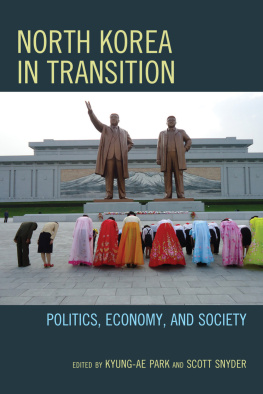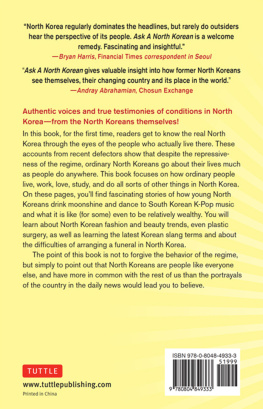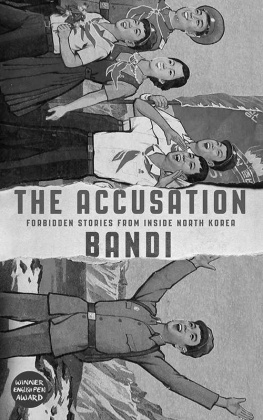
ENCOUNTER BROADSIDES
Inaugurated in the fall of 2009, Encounter Broadsides are a series of timely pamphlets and e-books from Encounter Books. Uniting an 18th century sense of public urgency and rhetorical wit (think The Federalist Papers, Common Sense) with 21st century technology and channels of distribution, Encounter Broadsides offer indispensable ammunition for intelligent debate on the critical issues of our time. Written with passion by some of our most authoritative authors, Encounter Broadsides make the case for ordered liberty and the institutions of democratic capitalism at a time when they are under siege from the resurgence of collectivist sentiment. Read them in a sitting and come away knowing the best we can hope for and the worst we must fear.

T HE MILITARY ALLIANCE between the United States and South Korea should continue forever, President Moon Jae-in declared in early November 2018. The South Korean leader said:
The Korea-U.S. alliance was forged in blood amid the artillery fire of the war, but it didnt stop there. It is developing into a great alliance that is creating peace on the Korean peninsula, drawing security and prosperity to the South and the U.S. and leading peace and stability in Northeast Asia.
Judging from Seouls official statements, the alliance, now spanning seven decades since the end of the fighting in the Korean War, appears to be strong. That is a matter of importance to every American because for more than a century U.S. policymakers have drawn their countrys western defense perimeter not off the coast of California, or Hawaii, or Guam, but off the coast of East Asia. South Korea, on the tip of the Asian continent, anchors the northern end of that forward line of defense.
The loss of South Korea, therefore, would be grievous for America. Now, unfortunately, the relationship between the blood allies looks like it might not last much longer.
President Moon, despite his inspiring words, is working hard to end the pact. He first wants a declaration of an end to the war and then a treaty to formally bring the conflict to a close. His senior advisors, many of whom openly support Pyongyang, are on record saying there will be no need for American troops after peace is declared.
In the meantime, Moon has been conducting his own defense policies without consultation of his partner, the United States, sometimes taking actions that undermine the ability of Washington to defend South Korea. Moons actions have predictably led some Americans to question whether the U.S. should remain on the peninsula.
Moons highest priority is to reunify Koreadivided at the end of the Second World Warby merging the Republic of Korea, the South, and the Democratic Peoples Republic of Korea, the North, even if that is accomplished on the Norths terms. It is hard to imagine how Moon, known to have harbored anti-American views for decades, would want a U.S. presence on the peninsula after the two Koreas, ROK and DPRK, form a single state.
Moons unification policy, unlike those of his predecessors, does not insist that a unified state be democratic as that term is understood in the South. As he works to unwind the alliance with the United States, Moon is also subverting the democracy he leads. He tried to amend the constitution to remove the concept of representative governance, and after that effort failed he went to work rewriting textbooks to remove references to liberty. He is jailing opponents and muzzling North Korean defectors while allowing pro-North thugs to work mischief and even break the law. He has orchestrated a climate of fear and intimidation.
The Republic of Korea is beginning to lose the badges of a free society. Moon, it appears, is trying to pave the way for unification by making South Korean society more compatible with the horrific regime in the North.
The loss of South Korea would be grievous for America. Now, the relationship between the blood allies looks like it might not last much longer.
Most disturbingly, Moon Jae-in is enthusiastically taking down his countrys defenses against North Korean infiltration and invasion and working to cripple the South Korean military. In short, he is making the South vulnerable. Some call him a traitor. Only Moon himself truly knows his loyalties, yet if it were his intention to help Kim Jong Un, the North Korean despot, take over South Koreaif Moon were in fact a traitorhe would be doing exactly what he is doing now.
In consequence, the United States and the free world are fast losing South Korea as an ally and partner.
T HE A LLIANCE F ORGED IN B LOOD
The era of no war has started, President Moon Jae-in announced in September 2018 during his summit with Kim Jong Un in Pyongyang. Today the North and South decided to remove all threats that can cause war from the entire Korean peninsula.
In fact, an era of no war on the peninsula started in 1953, when Seoul and Washington signed the alliance forged in blood. It is that allianceand not pronouncements by a smiling Moonthat has kept the peace. The 1953 military pact inaugurated one of the more tranquil eras in all of Korean history.
Before then, the peninsula was a land of continuous conflict. There have been about nine hundred invasions and five major occupations of Korea over the millennia. It took Japans defeat in World War II to end the last of those occupations. Korea technically did not exist as a country during the fighting.
Although Japanese troops went home in defeat, Korea turned out to be the global conflicts big loser. The Cairo Declaration of 1943 stated that in due course, Korea shall become free and independent, but events seemed to conspire against the Korean people, and so did the allies. In seeking help for the fight against Japan, President Truman persuaded the Soviet Union to declare war on Tokyo, which it finally did on August 8, 1945just seven days before the emperor capitulated. The U.S. government, determined to prevent a Soviet occupation of Japan, permitted Moscow to enter Korea. The Red Army crossed into the northern part of the peninsula the next day, August 9.
Washington had given almost no thought to the question of what to do with Korea, and no U.S. forces were there. In order to avoid a Soviet occupation of the entire peninsula, America proposed that Korea be divided. Two days after Soviet troops entered Korea, two junior U.S. Army officers, after glancing at a National Geographic map, picked the 38th parallel as the border for temporary occupation zones. Lieutenant Colonel Dean Rusk, later to become secretary of state, and his colleague unknowingly selected a line that had significance in Korean history and thereby inadvertently signaled to Moscow that the United States recognized the tsars old claim to the northern portion of the peninsula. The Soviets accepted and honored the proposed boundary. Korea, which had been unified for more than a millennium, was severed in two.
In different times, there might have been no consequence to the last-minute decision to split the peninsula, but in the ensuing competition between Moscow and Washington the stopgap measure took on lasting significance. There were supposed to be national elections in Korea, sponsored by the United Nations, but they were never held, and eventually each side in the global rivalry established its own client state. The American-backed Republic of Korea was officially established on August 15, 1948, and the Soviet-supported Democratic Peoples Republic of Korea was proclaimed less than a month later.

